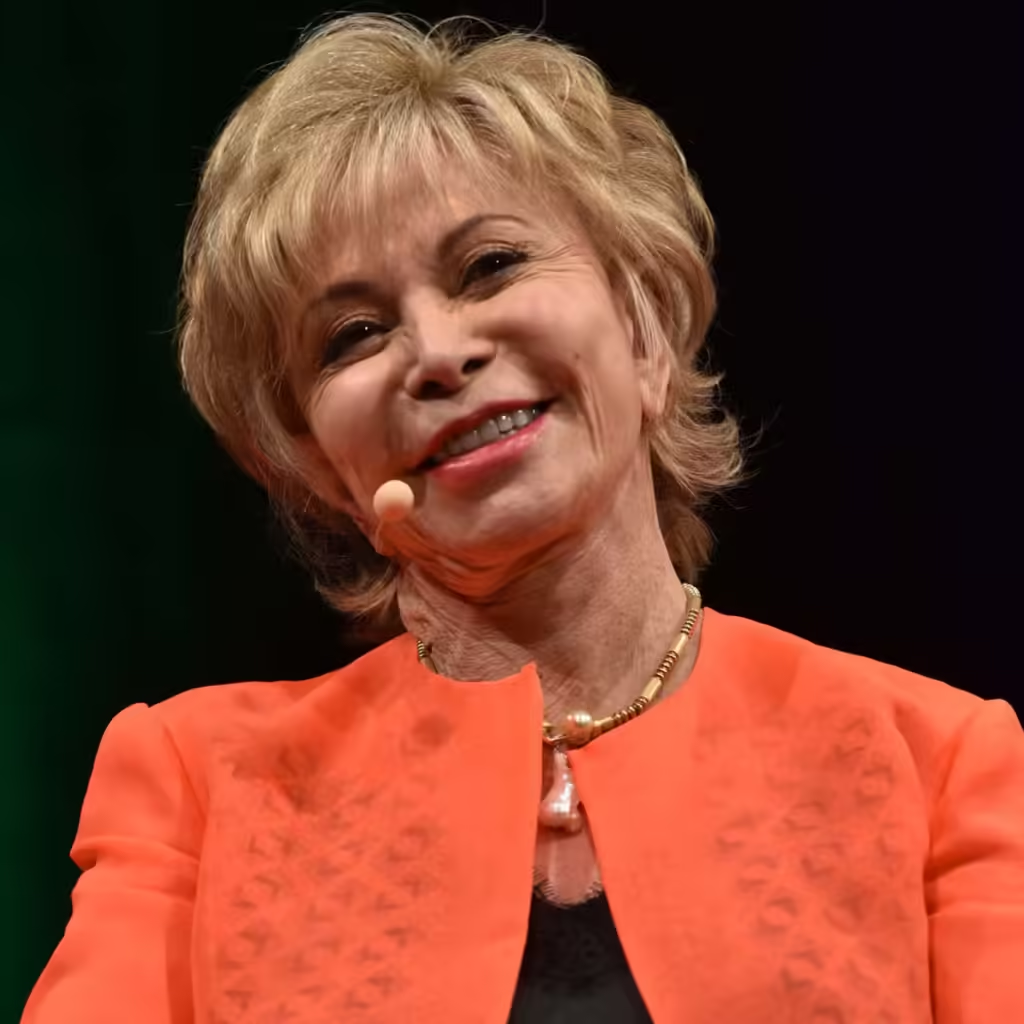
Table of Contents
Isabel Allende: An Overview
Isabel Allende, a renowned Chilean journalist and author, was born on August 2, 1942, in Lima, Peru. Best known for her novels The House of the Spirits and City of the Beasts, she has written over 20 books that have been translated into more than 35 languages, with sales surpassing 67 million copies worldwide.
Early Life
Allende was born into a politically influential family. Her father, Tomás Allende, a diplomat, abandoned the family when she was just two years old, prompting her mother, Francisca Allende, to move with Isabel and her siblings to Chile to live with her grandfather. In her childhood, Isabel described herself as rebellious, particularly influenced by the contrasting lives of her grandfather, who held power and privilege, and her mother, who struggled financially. This early exposure to inequality fostered her disdain for male authority and set the stage for her later activism and literary work.
Allende’s mother remarried diplomat Ramón Huidobro, which led to frequent relocations due to his career. It was during these formative years that Allende developed her determination to become a writer. In the 1960s and 1970s, she worked as a prominent journalist in television and magazines.
Literary Career
The course of Allende’s life shifted dramatically after the military coup of 1973, which ousted President Salvador Allende, her godfather. In the aftermath of the coup, she became an advocate for those oppressed under General Augusto Pinochet’s regime. After receiving threats, she fled Chile with her family in 1975, seeking refuge in Venezuela for 13 years.
During her exile, Allende began writing what would become her debut novel, The House of the Spirits (1985). Originally penned as a letter to her dying grandfather, the novel explores the intertwined lives of two families in Chile, spanning the period from the 1920s to the 1973 coup. Blending magical realism with political narrative, the book was a global bestseller and marked the beginning of her literary success.
Subsequent works by Allende include Of Love and Shadows (1987), Eva Luna (1987), The Infinite Plan (1991), Daughter of Fortune (1999), and The Japanese Lover (2015), among others. Her writing is marked by a blend of realism, social justice, and feminist themes, influenced by her own personal experiences and the tumultuous political landscape of her homeland.
In addition to her fiction, Allende wrote several deeply personal memoirs. Paula (1994) explores the life and tragic death of her daughter, while My Invented Country (2003) reflects on her nostalgic journey through Chile, her homeland. Other memoirs include Aphrodite: A Memoir of the Senses (1998) and The Sum of Our Days (2008).
In 2002, at the suggestion of her grandchildren, Allende began writing for young adults. City of the Beasts was the first book in a trilogy aimed at young readers, followed by Kingdom of the Golden Dragon (2003) and Forest of the Pygmies (2005).
Allende’s writing is celebrated not only for its narrative depth but also for its commitment to social and feminist issues, making her a key figure in both Latin American literature and global discussions on identity, politics, and culture.
Awards
Throughout her distinguished career, Isabel Allende has garnered numerous prestigious awards, including the Chilean National Prize for Literature in 2010 and the Library of Congress Creative Achievement Award for Fiction in the same year. In 2014, she was honored with the Presidential Medal of Freedom by President Barack Obama, recognizing her significant contributions to literature and social causes.
Personal Life
Allende married her first husband, Miguel Frías, in 1962, with whom she had two children: Paula (born 1963) and Nicolás (born 1966). Following their divorce in 1987, Allende married Willie Gordon, a lawyer and writer, in 1988. Their marriage lasted for 27 years before ending in divorce in 2015.
The couple faced profound personal losses, including the tragic deaths of two of Gordon’s children from a previous marriage, as well as the passing of Allende’s daughter Paula in 1992. Paula died at the age of 28 due to complications from a rare disease, porphyria. In memory of Paula, Allende founded the Isabel Allende Foundation, which is dedicated to promoting economic and social justice for women.
Allende has resided in the San Francisco Bay Area since 1987 and became a U.S. citizen in 1993. She often describes her life as being divided between her adopted home in California and her birthplace in Chile, living “with one foot in California and the other in Chile.”
